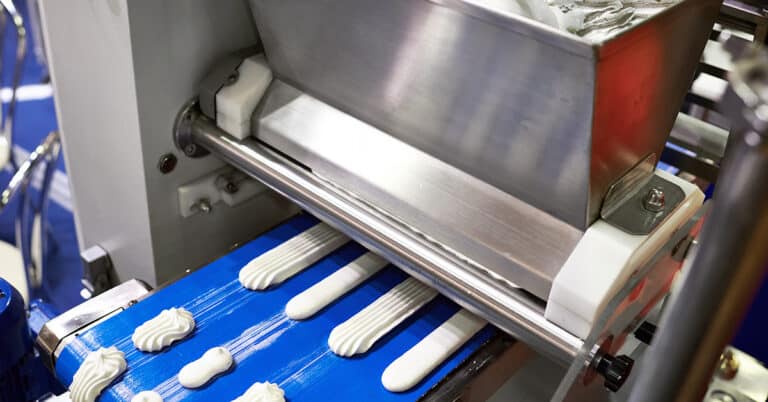One of the most important raw materials for manufacturers isn’t measured by the foot, by the pound or by the ton. In fact, it doesn’t even physically exist. It’s data, and rather than being used directly to manufacture products it’s a crucial component of how the industry builds its processes and procedures. As one of the driving forces behind how the sector operates in the 21st century, big data in manufacturing is big business. Operations around the world are working hard to ensure they’re using it as effectively and efficiently as possible. Just as they would worry about wasting physical raw materials such as plastic or steel, manufacturers are paying close attention to how they use big data in production to ensure they get the most out of it.
Understanding big data in the manufacturing industry
Data always played a role in manufacturing, but up until recently it was much more limited. For example, manufacturers needed to know their inventory levels of certain materials and components, their production timelines and their bottom line. When talking about “big data,” however, the definition becomes much more expansive. Practically every variable in every aspect of the industry can be quantified in one form or another, and modern technology makes it possible to collect and analyze all that information.
From the ETA of materials from a supplier to the ambient temperature around a specific piece of equipment, big data encompasses every detail of the manufacturing process. This information can be structured — referring to information that has a pre-defined data model — or unstructured, meaning it defies standardized organization.
One of the primary reasons why big data and manufacturing have become so intertwined in recent years has been the rise of technology. In addition to software that collects and collates data for analysis, machine sensors and the Industrial Internet of Things have made it possible for machines to communicate with operators and each other. This creates potentially billions of data points to be observed and analyzed at any given time.
Applications of big data in manufacturing
The virtually limitless amount of information available to manufacturers gives them the foundation to accomplish numerous transformations and improvements, including:
- Predictive maintenance: Algorithms fed by data collected from machine sensors can predict equipment failures. This means they can generate maintenance schedules automatically based on when equipment is most likely to require attention through machine health monitoring.
- Quality control: One of the most important applications of big data analytics in the manufacturing industry is ensuring quality control. These systems examine data at a granular level to ensure consistent operations.
- Computer vision: By examining the actions of human workers in real time, advanced AI software can adjust automated activity in response. This leads to dynamic synchronization of automation and the human workforce.
- Supply chain optimization: Eliminating guesswork in planning orders and predicting inventory levels through advanced data analytics improves efficiency and reduces costs for manufacturers.
- Production process optimization: The use of big data analytics for manufacturing enables streamlining of production processes to reduce waste and increase efficiencies.
- Product development: Processing the tremendous amounts of data collected in the modern manufacturing environment makes it easier to innovate and improve product designs.
Benefits of big data in manufacturing
When it comes to the benefits of big data, examples in the manufacturing sector include:
- Increased efficiency: Predictive analytics in manufacturing can reduce downtime, and other insights gained from big data can lead to faster production speed.
- Cost reduction: Optimized processes and reduced waste contribute to lower overhead and improved profit margins as a result.
- Improved quality: Big data’s impact on quality assurance means there are fewer defects in products that make it to market.
- Better decision-making: With a bird’s eye view of their operations that can be zoomed in to the smallest detail, manufacturers can gain data-driven manufacturing insights for better strategic planning.
- Enhanced customer satisfaction: Higher-quality products and faster service means manufacturers can build stronger reputations among their customer bases.
Challenges of implementing big data in manufacturing
Although big data can be a boon for manufacturers, it’s important that they have a solid strategy for implementing it. Planning ahead is critical for avoiding complications surrounding:
- Data integration: With so many different sources and formats for data, you must formulate a plan to combine all data points to make them actually useful.
- Data security: Ensuring data protection and user privacy is extremely important with so much information being processed and shared daily.
- Skill gaps: There will be a need for skilled personnel to analyze and interpret the data.
- Initial investment: There will be costs associated with any implementation of new technologies. Identify key stakeholders and communicate the benefits the data will provide.
Data can’t be moved with a forklift or machined with equipment, but in today’s industry it’s one of the most important raw materials manufacturers use. Leveraging the power of big data gives the manufacturing sector powerful insights into virtually every aspect of their operations. ATS can help you use big data in the most efficient manner, contact us to learn more.






